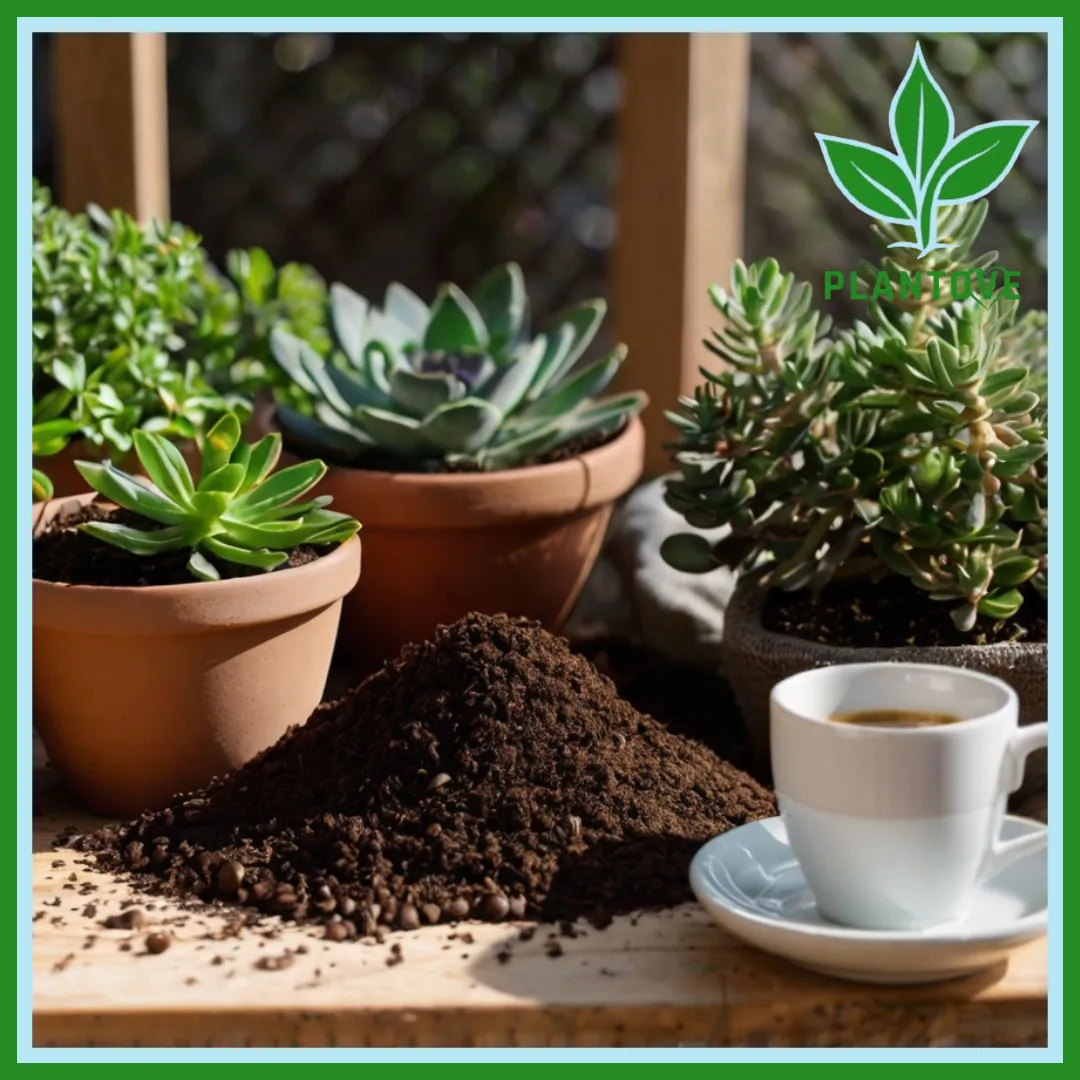Coffee grounds are a popular choice among gardeners as a natural fertilizer, compost additive, and pest repellent. They are rich in nutrients like nitrogen, making them beneficial for many plants. However, not all plants appreciate the acidity and texture that coffee grounds can introduce to the soil. Knowing what plants don’t like coffee grounds can save you time, effort, and the health of your garden.
In this article, we will explore why some plants are negatively impacted by coffee grounds, the plants you should avoid using them on, and how to use coffee grounds properly for those plants that can benefit from them. By understanding the effects of coffee grounds, you can make better decisions for your garden’s overall success.
Why Some Plants Don’t Like Coffee Grounds
Before diving into which plants don’t appreciate coffee grounds, it’s important to understand why. Coffee grounds are often touted as a great addition to the garden because of their nutrient content, but they also have properties that can harm certain plants:
- Acidity: Coffee grounds are slightly acidic, and while some plants thrive in acidic soil, others do not. If used in excess, coffee grounds can make the soil too acidic for certain plants to grow properly.
- Compaction: Coffee grounds, when applied directly to the soil in large quantities, can compact easily, leading to poor aeration and drainage. This can suffocate plant roots and prevent proper water absorption.
- Caffeine: Coffee grounds contain residual caffeine, which can inhibit the growth of certain plants by reducing water and nutrient uptake.
Because of these factors, it’s essential to know which plants can tolerate coffee grounds and which cannot.
What Plants Don’t Like Coffee Grounds
While coffee grounds can benefit many acid-loving plants, there are several types of plants that should be kept away from them. Let’s take a look at what plants don’t like coffee grounds and why.
1. Tomato Plants
Tomato plants are highly sensitive to coffee grounds, especially when used in excess. The high acidity of the grounds can disrupt the pH balance in the soil, making it difficult for tomatoes to absorb essential nutrients. In addition, the caffeine content can stunt the growth of tomato plants, leading to smaller fruit or a reduced yield.
Alternative Solution:
Tomatoes prefer well-draining, slightly acidic to neutral soil (pH 6.0-6.8). Instead of coffee grounds, you can add compost or a well-balanced fertilizer to your tomato plants for better results.
2. Lavender
Lavender thrives in well-draining, alkaline soil. Adding coffee grounds to lavender plants can increase soil acidity, which will harm their growth. Lavender prefers a soil pH of 6.5 to 7.5, so introducing acidic coffee grounds can cause yellowing leaves, poor flowering, and overall stunted growth.
Alternative Solution:
If you’re growing lavender, focus on well-drained, sandy soil, and avoid adding anything that can increase soil moisture, like coffee grounds. Instead, use lime or wood ash to help raise soil pH levels if needed.
3. Aloe Vera
Aloe Vera is a succulent that prefers dry, sandy soil and doesn’t do well in moist, compact environments. Using coffee grounds, which retain moisture and can cause compaction, will likely lead to root rot in Aloe Vera. The added acidity from the coffee grounds can also affect the plant’s ability to absorb nutrients, leading to poor health.
Alternative Solution:
Aloe Vera thrives in cactus mix or sandy, well-draining soil. Instead of using coffee grounds, focus on providing proper sunlight and avoiding overwatering.
4. Rosemary
Rosemary is another plant that thrives in well-drained, neutral to alkaline soil. Like lavender, rosemary does not do well in acidic environments, and adding coffee grounds can harm its growth. This Mediterranean herb is drought-tolerant and prefers soil that is not too rich or moist.
Alternative Solution:
To keep your rosemary plant healthy, provide sandy soil with excellent drainage and avoid acidic materials like coffee grounds. A light organic compost can be used sparingly if needed.
5. Clovers
Clovers, often used as ground cover or in lawns, are nitrogen-fixing plants that don’t benefit from the added nitrogen that coffee grounds provide. Additionally, coffee grounds’ slight acidity can disrupt clovers’ ability to spread and thrive. For clovers, it’s best to avoid coffee grounds altogether.
Alternative Solution:
If you’re growing clovers, focus on keeping the soil well-aerated and free from overly acidic amendments. Clovers usually thrive in nutrient-poor soil, so no need to add much in the way of fertilizers or organic matter.
How to Get the Best Out of Coffee Grounds
While many plants don’t like coffee grounds, there are several ways to use them beneficially in the garden when applied correctly. The key is understanding how much and how often to use them.
1. Composting Coffee Grounds
One of the best ways to utilize coffee grounds is by adding them to your compost pile. When mixed with other compostable materials, like kitchen scraps and garden waste, coffee grounds break down and become less acidic. This creates a nutrient-rich compost that’s more balanced and suitable for a wider variety of plants.
2. Using Coffee Grounds Sparingly as Mulch
If you’re using coffee grounds as mulch, make sure to do so sparingly. A thin layer of grounds can provide nutrients and improve soil texture. However, avoid piling them on too thickly, as this can create a water-repellent barrier that prevents moisture from reaching the plant roots.
3. Mixing Coffee Grounds with Other Soil Amendments
To reduce the acidity and compaction issues caused by coffee grounds, you can mix them with other soil amendments like compost, leaf mold, or sand. This creates a more balanced and well-draining mixture that can be used for plants that can tolerate slight acidity.
4. Using Coffee Grounds on Acid-Loving Plants
If you have acid-loving plants like blueberries, azaleas, rhododendrons, and camellias, coffee grounds can be highly beneficial. These plants thrive in acidic soil, and the nitrogen boost from coffee grounds can promote healthy growth and vibrant blooms.
What to Consider Before Using Coffee Grounds
When deciding whether or not to use coffee grounds in your garden, there are several factors to consider:
1. Soil pH
Before adding coffee grounds to your garden, test your soil’s pH level. If your soil is already acidic, adding more acidity from coffee grounds can tip the balance and harm your plants. Aim for a pH level that matches your plant’s needs, and use coffee grounds sparingly if you’re dealing with plants that prefer neutral or alkaline soil.
2. Drainage
As mentioned earlier, coffee grounds can compact easily, which reduces soil aeration and drainage. This is especially harmful for plants that prefer well-drained soil, like succulents, lavender, and rosemary. To avoid this, mix coffee grounds with materials that improve drainage, like perlite or sand.
3. Caffeine Content
The caffeine present in coffee grounds can inhibit the growth of certain plants. While most of the caffeine is removed during the brewing process, residual amounts can still affect sensitive plants. Be cautious when applying coffee grounds to plants known to be sensitive to caffeine.
Alternatives to Coffee Grounds for Sensitive Plants
If you’re growing plants that don’t respond well to coffee grounds, there are plenty of other natural fertilizers and soil amendments to use:
- Eggshells: Eggshells are rich in calcium and can help strengthen plant cell walls. They also neutralize acidic soil.
- Banana Peels: Banana peels are high in potassium, which is beneficial for plant growth and fruit production.
- Epsom Salt: Epsom salt provides magnesium and sulfur, which are essential for photosynthesis and healthy plant development.
- Bone Meal: Bone meal is a good source of phosphorus and calcium, both of which promote healthy root and flower development.
By using these alternatives, you can still enrich your soil without the potential drawbacks of coffee grounds.
Conclusion
While coffee grounds can be an excellent organic amendment for certain plants, not all plants benefit from their use. Knowing what plants don’t like coffee grounds is essential for maintaining a healthy, thriving garden. By avoiding the use of coffee grounds on sensitive plants like tomatoes, lavender, and aloe vera, and focusing on acid-loving plants or proper composting, you can ensure that your garden flourishes without the negative impact of coffee grounds. Always consider the unique needs of each plant and use coffee grounds wisely for the best results.

